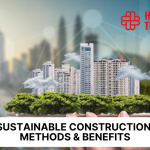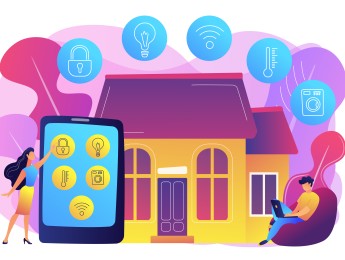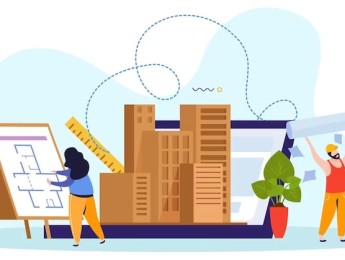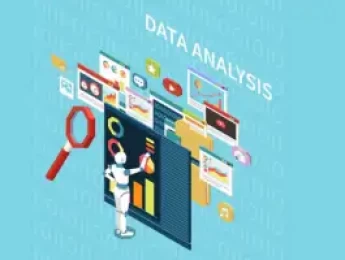A smart city is an urban area that integrates advanced technologies and innovative solutions to enhance the quality of life for its residents, optimise resource utilisation, and improve overall efficiency. These cities leverage interconnected sensors, data analytics, and communication technologies to gather and analyse real-time information, facilitating informed decision-making.
The design and development of smart cities is poised to revolutionise the future by addressing contemporary urban challenges such as traffic congestion, pollution, energy consumption, and resource management. Smart city initiatives also aim to create sustainable environments through the integration of smart infrastructure, efficient transportation systems, and responsive public services.
By fostering connectivity and leveraging the Internet of Things (IoT), smart cities have the potential to enhance urban living standards, reduce environmental impact, and promote economic growth. The future impact of smart city development extends beyond mere technological advancements, influencing societal behaviour, economic structures, and governance models, ushering in a new era of interconnected and intelligent urban landscapes.
Upon completion of this course, participants will be able to:
- Explore the impact of disruptive innovations, particularly smart technologies, on urban infrastructure systems
- Examine state-of-the-art strategies for implementing "smart infrastructure" solutions in cities, ensuring a smooth transition from legacy infrastructures to intelligent systems.
- Manage the transition phase from traditional infrastructure to smart cities, fostering innovation while avoiding early lock-in
- Gain insight into various categories of innovation within the public sector.
- Familiarise yourself with the Smart City paradigm and its implications
- Grasp the role of Big Data in shaping the development of smart cities
- Establish connections between the rise of the Internet of Things and the evolution of smart cities
- Acknowledge the importance of intent-based networking
- Equip public sector organisations to embrace the challenges and opportunities of future cities
- Explore smart urban transportation systems and energy systems.
This course is designed for anyone intending to become part of the development of smart city integration or people involved with the public sector aiming for greater insight. It would be most beneficial for:
- Engineers
- Researchers
- Public Sector Professionals
- Government Employees
- Urban Planners
- Project Managers
- Finance Managers
- IT Coordinators
- Strategic Development Personnel
- Researchers
This course uses a variety of adult learning styles to aid full understanding and comprehension. Participants will view videos and trainer-led interactive presentations to understand the key benefits of implementing strategic changes towards a smart city environment.
They will also be presented with real-world case studies within the public sector that raise challenges to the upcoming changes. They will work together on risk mitigation and strategic forward planning to ensure a positive resolution.
Day 5 of each course is reserved for a Q&A session, which may occur off-site. For 10-day courses, this also applies to day 10
Section 1: The Future of Smart Cities
- Understanding the concept and goals of smart cities.
- Technological innovations shaping the future of urban development.
- Data-driven decision-making in smart city planning.
- Sustainable and green initiatives for future urban environments.
- Economic and social impacts of smart city implementations.
- Case studies of successful smart city projects globally.
- Policy and regulatory frameworks for smart city development.
Section 2: Public Sector Changes & Challenges
- Ethical considerations in the evolution of smart cities.
- Challenges in adapting to new technologies and digitalisation.
- Government policies and their impact on public sector organisations.
- The role of leadership in navigating public sector changes.
- Building resilience in the face of budget constraints and resource limitations.
- Enhancing efficiency and effectiveness in public service delivery.
- Addressing workforce challenges and talent management.
- The impact of political and social changes on the public sector.
Section 3: What Smart Cities Mean for Our Economy
- Smart transportation solutions for improved mobility.
- Building resilient and adaptive urban infrastructure.
- Citizen engagement and participatory planning in smart cities.
- Fostering innovation and collaboration in public service organisations.
- Implementing transparent and accountable governance structures.
Section 4: Networking Principles for Public Sector Change
- The role of collaboration between public and private sectors.
- Effective communication strategies for stakeholder engagement.
- Building and maintaining professional relationships.
- Leveraging social media and online platforms for networking.
- Navigating networking events and conferences in the public sector.
- Collaboration and partnership building with government agencies.
Section 5: AI & Smart Tech & Its Relationship with People
- IoT (Internet of Things) and its role in smart city infrastructure.
- The integration of AI (Artificial Intelligence) in smart city systems.
- Addressing challenges of privacy and cybersecurity in smart city technologies.
- Fostering collaboration between technology developers and city planners.
- The potential of AI in improving public safety and security.
- The relationship between technology and inclusivity in urban planning.
Section 6: The Future Benefits of Smart Cities
- Opportunities for job creation and skill development in smart industries.
- Increased safety and security through smart city technologies.
- Smart mobility solutions for convenient and sustainable transportation.
- Healthcare advancements and improved well-being in smart cities.
- Promoting social inclusion and accessibility through technology.
- Potential cost savings for both government and citizens in smart cities.
Upon successful completion of this training course, delegates will be awarded a Holistique Training Certificate of Completion. For those who attend and complete the online training course, a Holistique Training e-Certificate will be provided.
Holistique Training Certificates are accredited by the British Assessment Council (BAC) and The CPD Certification Service (CPD), and are certified under ISO 9001, ISO 21001, and ISO 29993 standards.
CPD credits for this course are granted by our Certificates and will be reflected on the Holistique Training Certificate of Completion. In accordance with the standards of The CPD Certification Service, one CPD credit is awarded per hour of course attendance. A maximum of 50 CPD credits can be claimed for any single course we currently offer.
- Course Code IND13-109
- Course Format Classroom, Online,
- Duration 5 days














